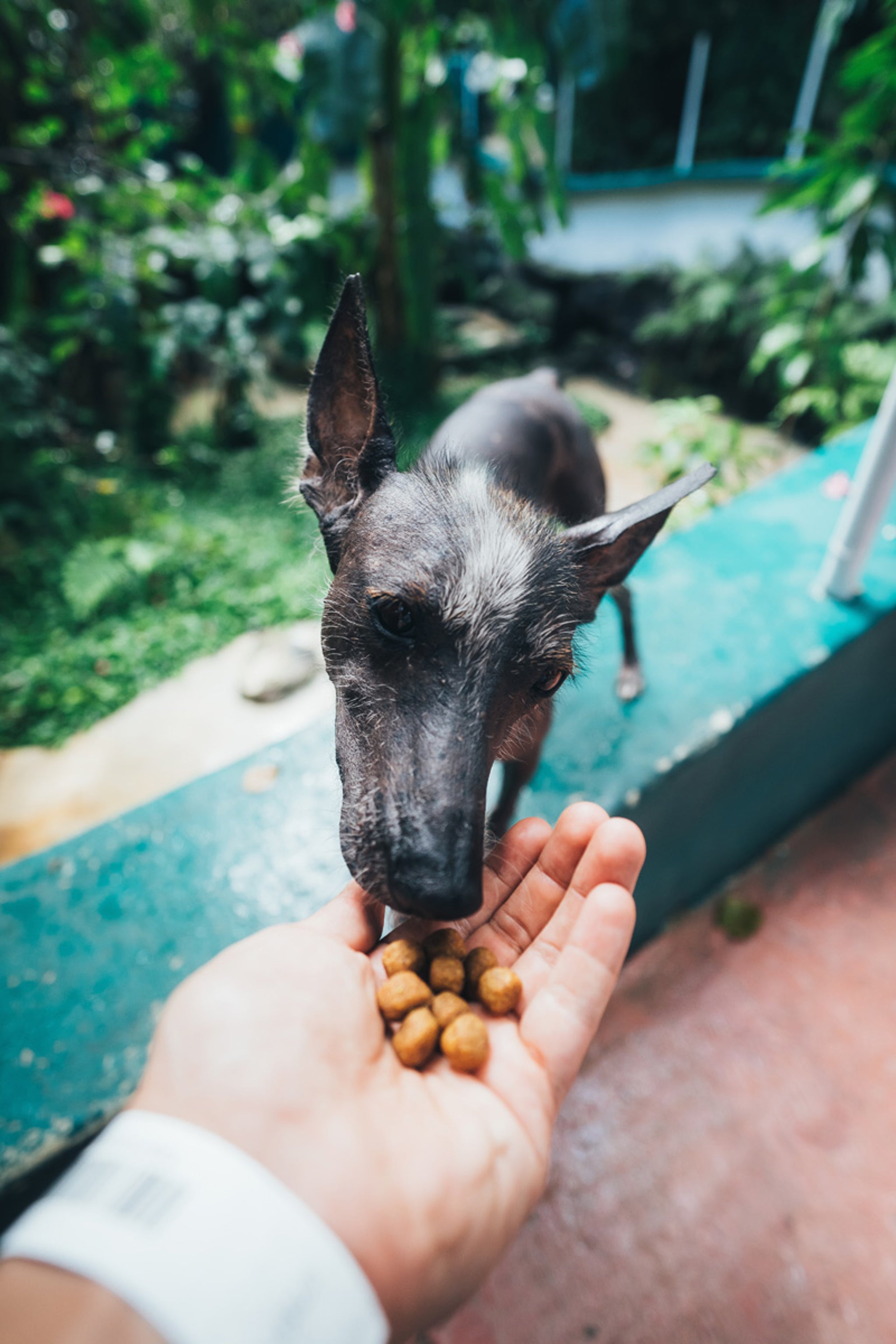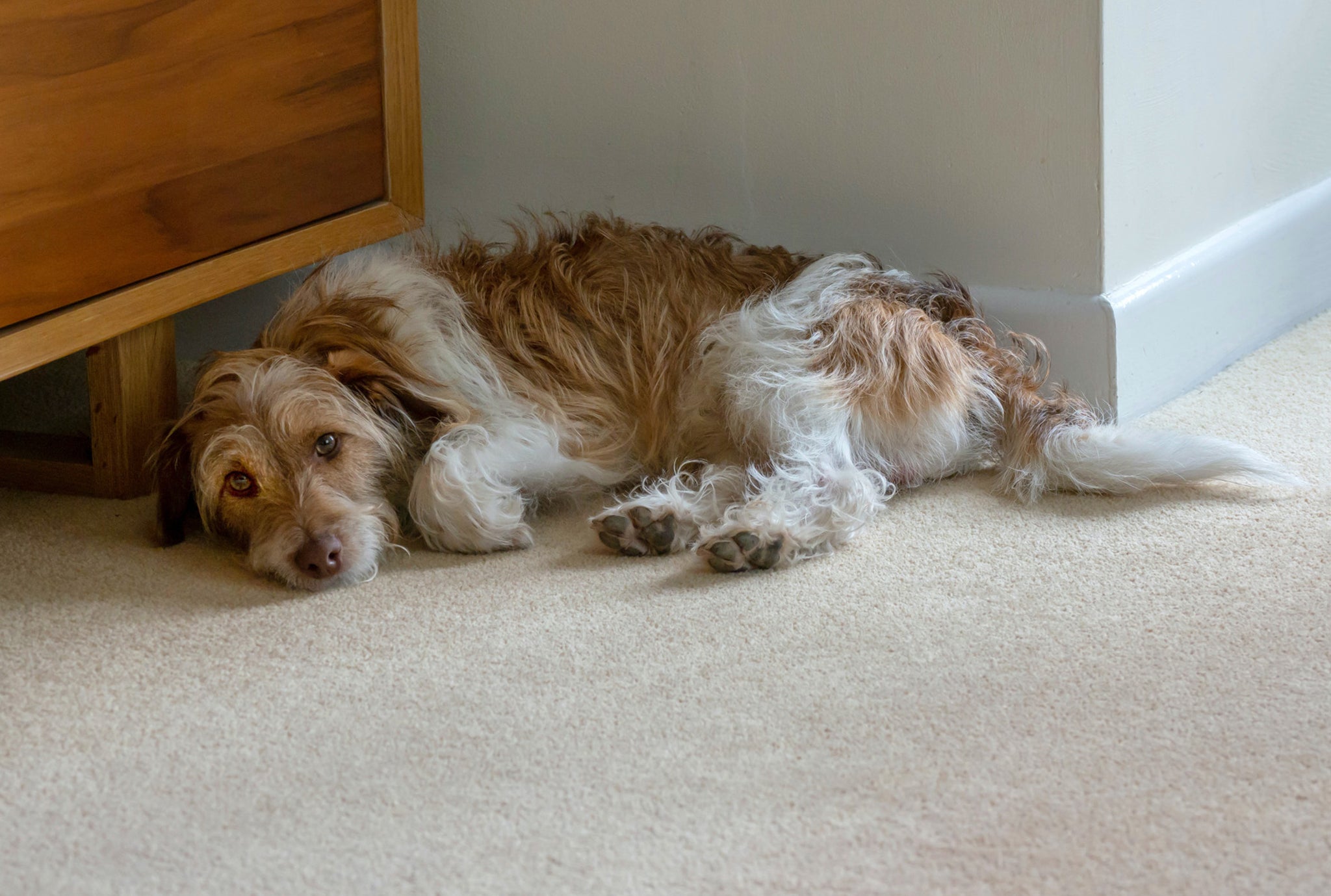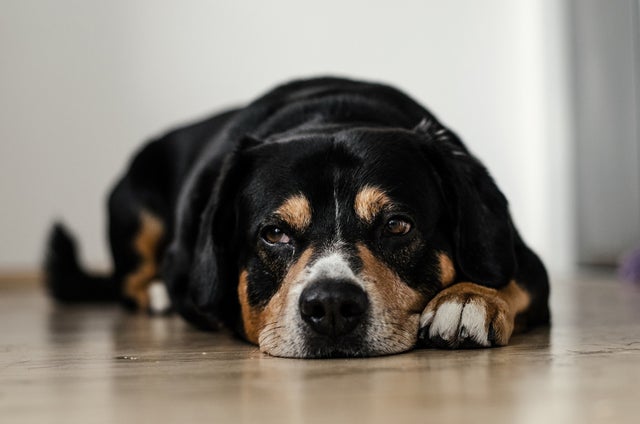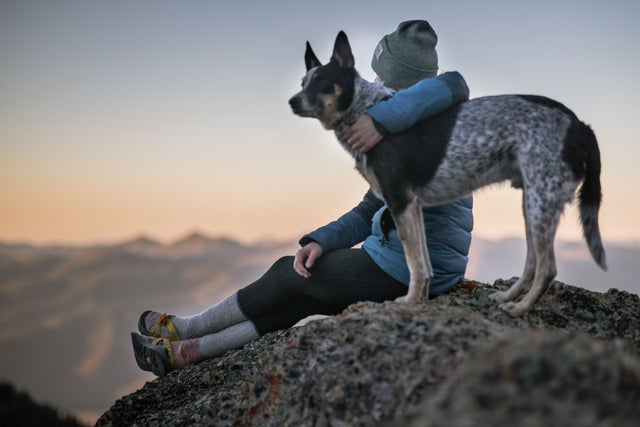Your dog’s loss of appetite could be a result of cancer or their cancer treatments. Sometimes cancer treatments make dogs nauseous and they refuse to eat. Dogs can develop cancer cachexia, where they experience significant weight loss. You may need to try a few different methods to encourage your dog to eat.
Try Separating the Foods on Their Plate
If you’ve switched to a special home-made diet involving multiple foods, don’t mix them together. Just like some children don’t like their different foods to touch, your dog may not want vegetables touching meat. Try serving the food in separate piles on their plate. Even if they only eat one pile, at least they are eating, and you’ve learned something about their current preferences.
Foods like salmon are great sources of protein and omega-3 fatty acids to help provide your dog a healthy source of protein and healthy fats. In the wild, dogs instinctively eat the foods that provide the nutrients they need by self-selecting. This might explain why one week your dog loves carrots, but the following week they don’t want to touch them. Try to present options to your dog. Separating the food groups is a good way to allow them to choose the foods they want. Any food is better than no food.
They May Not Eat in a Stressful Environment
Your dog responds to your mood and the atmosphere. If there is noise or excitement when it is time to eat, they may feel pressured or nervous. Can you remember a time when you were so anxious, your stomach was in a knot? Your dog may experience that too. Their body is changing, and they are probably nervous. Try to speak to them in a calm, happy tone. They need to know you are relaxed so they can relax and eat.
Wait it Out and Try Again
Your dog’s loss of appetite could be temporary. You may want to wait an hour or two and then try again. Sometimes it helps to try smaller meals fed more often so you dog is getting the nutrients they need but given throughout the day instead of a couple meals. If it has been more than a day since your dog has eaten, contact your veterinarian to determine what is causing the issue.

Stimulate Their Appetite
Variety can help. If they will not eat, try giving them some of your dinner. There are certain foods that should always be avoided, but if they want some rotisserie chicken, it may help stimulate their appetite. Some vets recommend rotisserie chicken as an appetite stimulus, because it smells irresistible to dogs and is safe. Just be careful not to give them the bones or skin. You can also try heating food or dressing food with chicken broth to make it more palatable. Your veterinarian can also prescribe medications that will stimulate your dog’s appetite.
Hand Feeding
To encourage your dog to eat, feed them out of your hand. They may decide they like the food and return to the bowl to finish the meal, or they may insist you continue to hand-feed them. This is a nice way to put your dog at ease and allows them to connect with you and feel secure.

Acupuncture
Your veterinarian may recommend acupuncture as another way to help your dog with loss of appetite and anxiety. A veterinary acupuncturist can target pain points and relieve tension by releasing the body’s natural painkillers. Acupressure is an alternative to acupuncture. An acupressure professional can produce similar results. Check with your veterinarian to see what options might be best for your pet.
Bottom Line
Loss of appetite with cancer treatment is common. Many veterinarians recommend foods low in carbohydrates, high in proteins, and high in healthy fats like omega-3s. This helps replace fat stores and proteins absorbed by existing tumors. Talk with your veterinarian for other tips to encourage your dog to eat.




